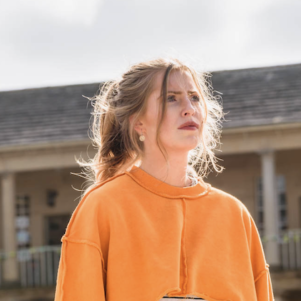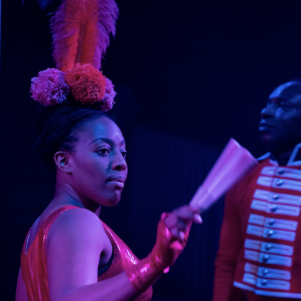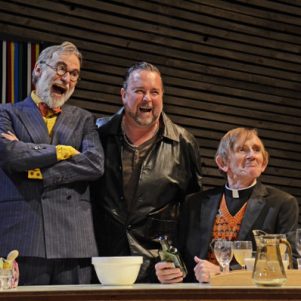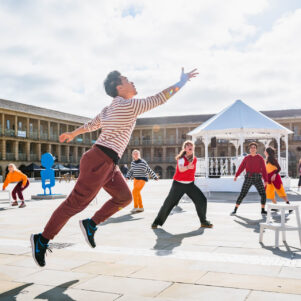It’s January 2016. I’m cold, I’m wet and I’m miserable. Somehow, I’ve found myself sat on a threadbare couch in the middle of a warehouse in Bristol; a Twix in one hand, a script in the other, ready to put on a play.
We’re putting on an evening of extracts taken from across Shakespeare’s collected works and – given that we’re in a building which is, frankly, more wind that it is walls – I’m not surprised that we’re all huddled around one measly heater, bitterly muttering ‘blow, blow, thou winter wind’ into our gloved hands. We’re not trying to cheer ourselves up: we’re wallowing.
‘You know,’ I think, spitefully, as a pang of icy cold shoots through my fingers, ‘I bet the actor playing King Lear is loving this.’
‘It’s like I’m on the moor!’, they say, almost on cue. I’m pleased when they end up being the only one who laughs.
Suddenly, the director walks in (late) with a coffee in hand, announcing it’s time to learn the jig they’ve choreographed for the end of the show. A jig? Nobody had said anything about a jig.
It had become an annual tradition at university. An evening of gender swapped, gender blind, and gender bent Shakespeare which we – rather smugly – called ‘Shakesqueer’. Whilst the titular pun might be better than our performances (I doubt my Lady Macbeth or my Juliet will move anyone to tears), the idea of the show excites us: What happens when we play with these classics? What shifts and changes? What passages which seem innocuous suddenly feel prescient and new?
I swallow my pride and the last dregs of my tea in one gulp, take a deep breath and step forward as the music for the jig starts to echo through the building…
***
It’s February 2022. I’m working from home and I’m desperately trying to figure out what I can say in a blog post I’ve been asked to write about As You Like It. The problem is, there isn’t anything I can say that hasn’t been said before. I’m forced to come out with a cliché:
Shakespeare’s work is endlessly intriguing, complex, and nuanced and returning to his work now as a professional theatre-maker has been thoroughly rewarding.
I look at the words on my screen and think: ‘actually, you know what, it’s cliché but it’s true’.
And it is. Rather than dryly studying Shakespeare’s texts in a university library, or hastily making a student production with a budget of £15 and a packet of monster munch, making As You Like It has enabled me to meet Shakespeare as one artist meeting another. That’s not to say that it hasn’t been challenging. That would be a lie: the play is immense and intimate and intelligent and instinctual and we only had four weeks to make it.
Even whilst it was a mammoth undertaking, it was an incredibly exciting one and one in which I feel the stars aligned for me. Not having worked on Shakespeare since my university days, I now found myself making a professional Shakespeare production which was even queerer than the one we’d made as students.
It’s not surprising. The play is bursting with queerness: Who loves who? What is it about that person they’re attracted to? How do these characters identify? How does that change and evolve? Who do these people become? In making this show, we answered some of these questions, some we didn’t – and deliberately so. Shakespeare’s play is fluid and contradictory and ethereal so why wouldn’t we embrace that when making it? As a queer person myself, this show fills me with enormous pride when I see all the fantastic queerness we’ve managed to uncover in the play and in our working practices in the rehearsal room. I cannot wait to share this production with audiences.
And as for that show back in Bristol? I think it went alright, all things considered. I didn’t fluff a line, I jigged my heart out and, walking out of the warehouse that night, heading to the pub for a pint and – more importantly – some warmth, I did think to myself: ‘I hope I get to do something like that again one day.’
By Hallam Breen (Assistant Director on As You Like It and Northern Broadsides’ Resident Director)







